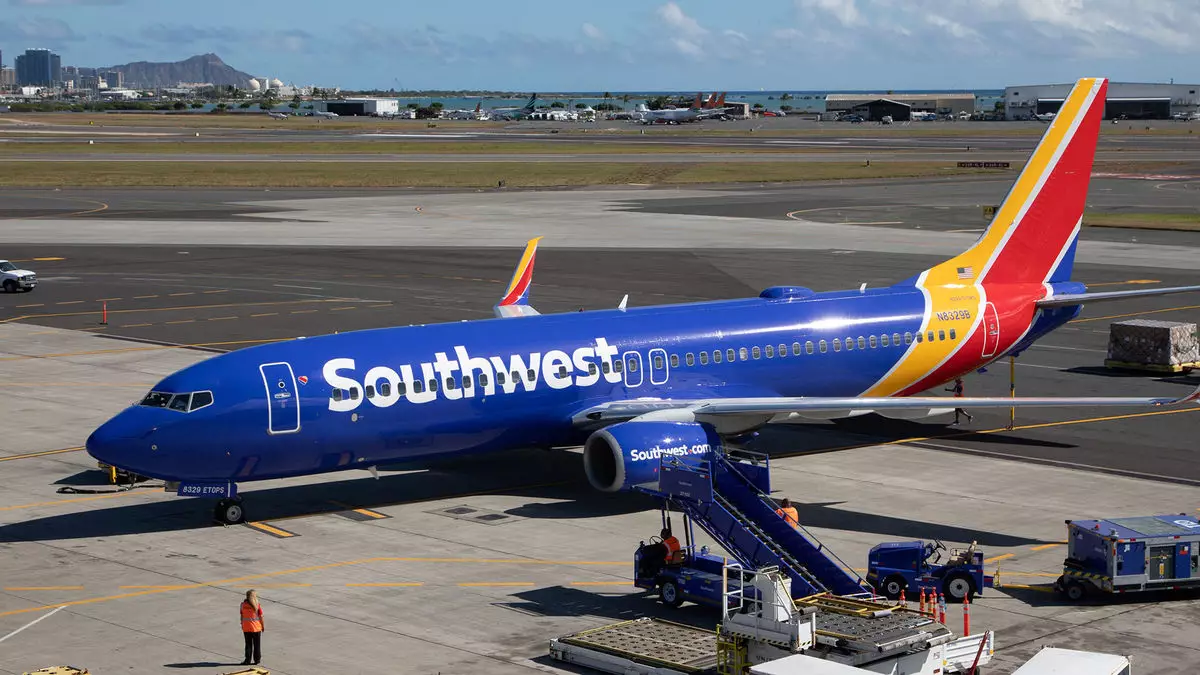In the wake of shifting political landscapes, corporations across America are re-evaluating their Diversity, Equity, and Inclusion (DEI) initiatives. Southwest Airlines, under CEO Bob Jordan’s leadership, is no exception. As discussions intensify regarding the future of DEI programs, especially after significant changes made by the Trump administration, the airline is faced with challenges that could shape its corporate identity. With the outgoing administration’s executive orders dismantling federal DEI structures, it raises critical questions about how private companies, like Southwest, will approach these initiatives amidst potential backlash.
During a recent quarterly earnings call, Bob Jordan emphasized the airline’s dedication to fostering an inclusive culture. Despite the administration’s stance, which has evolved to be less supportive of federal DEI initiatives, Jordan articulated a strong moral obligation to continue championing diversity and inclusion within the company. His remarks indicated a clear intent to navigate the complexities of federal policies while still adhering to a foundational belief in equitable workplace practices. However, the ambiguity surrounding potential punitive measures for companies openly embracing DEI principles could deter other corporations from upholding similar commitments.
Shifts in Organizational Roles and Titles
A notable shift occurred within Southwest Airlines when Juan Suarez, the former vice president of DEI, changed his title on LinkedIn to reflect a broader focus on corporate citizenship and inclusion. Such a move raises eyebrows regarding the internal interpretation of DEI roles amid external pressures. This renaming could suggest an organizational pivot aimed at aligning public perception with political realities, reflecting a common trend in the corporate sector where titles and roles adjust while maintaining core values discreetly under the surface. This strategic reframing raises questions: Is it merely a change in nomenclature, or does it signify a deeper shift in organizational priorities?
Jordan has committed to a proactive stance, stating that the company will continuously evaluate governmental policies and their implications. The challenge lies not just in upholding a progressive culture within Southwest but also in addressing the shared concerns of employees about the efficacy and future of DEI initiatives in the current sociopolitical climate. Will the company forge ahead with its DEI commitments in a way that sets an example, or will it retreat into a more conservative interpretation to ensure its political safety in an evolving landscape?
Ultimately, the approach Southwest Airlines takes toward DEI amidst external pressures will have ramifications beyond its corporate walls. The company has a unique opportunity to influence industry standards and reinforce its commitment to diversity and inclusion, or it could conform to a less innovative stance, risking reputational damage among socially-conscious consumers. The path chosen may not only affect Southwest’s internal culture but could also reverberate throughout the entire aviation sector.
As the gears of political change turn, how Southwest Airlines adapts its DEI strategy will be telling of its leadership ethos and commitment to fostering an inclusive workplace. It is a pivotal moment for the airline, where staying true to its values could prove beneficial—not only for employees but also for its broader customer base, which increasingly values corporate responsibility and inclusivity.


Leave a Reply